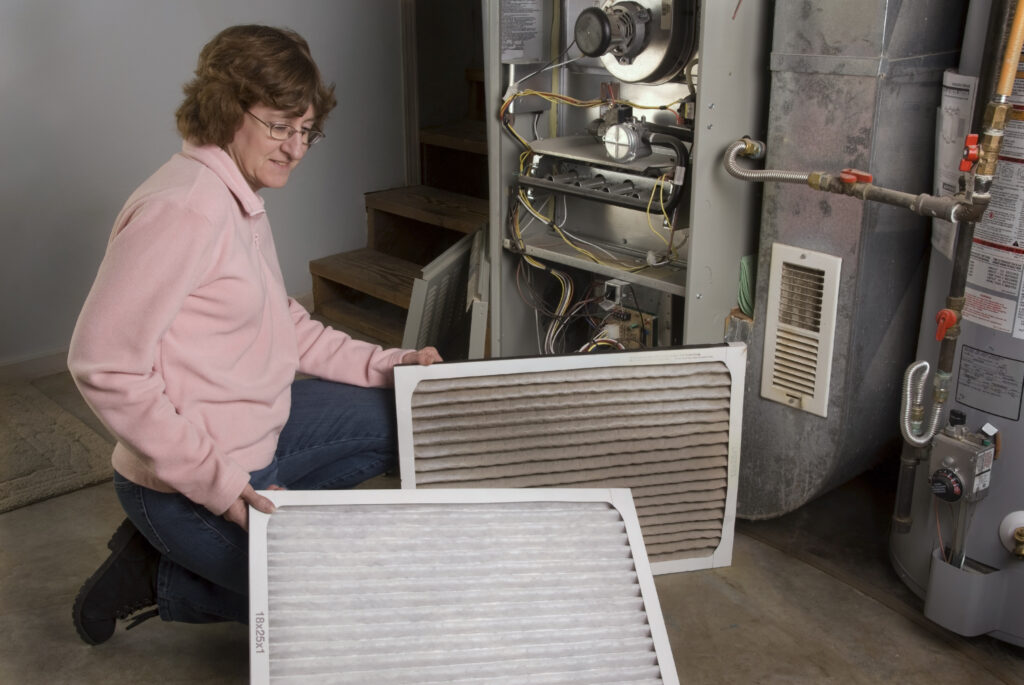Heating and cooling systems are the biggest energy users in your home. About 48% of energy use in the average home goes to heating and cooling.
That’s almost half! What’s even more startling is that most homes waste about 35% of the energy they use.
Do you realize what this means? You may be able to save 35% of what you spend on energy each month!
Ready to learn how to save? Let’s start by learning to manage your central heating and cooling system the correct way.
It’s a big energy user in your home. That means streamlining its operation is sure to cut down on wasted energy.
Set Up Your Thermostat
Your thermostat can be a huge help in saving energy. You can set a digital thermostat to different temperatures throughout the day.
Many people leave their systems on for more time than necessary because they forget to turn it off. To avoid this problem, let the thermostat handle it for you.
Set it so that your central heating and cooling system is not working hard when you’re at work. This would be down in the winter and up in the summer.
In the winter, you can set it a few degrees lower at night. When you’re all snuggled in your bed, you don’t need the extra heat in your home.
Don’t make the mistake of cranking your thermostat up or down to heat or cool faster. It doesn’t actually work any faster. But it may end up running longer because you forget to reset it. Thus, it uses up more energy.
Keep Filters And Compressors Clean
Central heating and cooling systems have air filters that get dirty over time. Those filters get clogged up with dust, pollen, mold spores and whatever else is in the air.
When they are dirty like this, air doesn’t flow very easily. That means that the system has to work harder to pull through enough air. This uses up more energy and also puts extra wear and tear on the system.
Check your owner’s manual for the recommended intervals for changing those filters. Depending on where you live, and the time of year, those intervals may change a bit. It’s a good idea to get in the habit of checking until you get a feel for a good schedule.
Some systems also have a compressor outside that exchanges hot air for cold. Check the compressor on occasion to ensure nothing is blocking the free flow of air. Common blockages include shrubs, grass, or accumulated dead leaves.
Insulate Your Home
Button up your home as much as you can. Do you have some air leaks around windows or doors? Add some caulking or weatherstripping to seal those off.
Ask a professional to test your heating and cooling ducts. Sometimes these can have leaks and become an obvious drain on the system.
Better insulation will also keep your home’s climate more controlled. Consider adding some in the attic, which is often a big source of hot air loss.
Also, be careful how much you use your bathroom and kitchen exhaust fans. These can be big areas where you lose air from your home.
You may be pumping out excess moisture (or smoke when you forget your cookies in the oven). But you’re also pumping out your heated (or cooled) air.
Consider The Sun
Solar heat is a big source of heat. Learn how to put it to work for you and not let it work against you. Here’s how.
Install your air conditioner where the house (or something else) will keep it in the shade. It will have to work less to keep itself cool and produce cool air.
During the summer you can minimize how much the sun heats up your home. Close the shades or drapes where the sun shines directly through. This is most important in the afternoon when the sunshine is the hottest.
You may even consider adding thermal liners to your curtains. These will reflect back more rays and not let them enter your home.
Or you could opt for adding a UV blocking tint to your windows. To keep the cost down, you can do it only on the windows that receive the strongest sun.
Ensure there is proper ventilation in the attic. Attics heat up quickly because the roof is often directly in the sun for much of the day. Proper ventilation gives the hot air somewhere to go.
During the winter, do the opposite. Open up those drapes and let the sunshine in as much as possible. But close them at night to keep heat inside. Also, make sure your attic is buttoned up tight.
Turn Things Off
During the summer, there are several appliances you can turn off to minimize heat gain. For example, turn off the pilot light on your gas furnace or fireplace. You won’t be needing it until next winter anyway.
It’s a good idea to unplug any devices that you’re not using. Lots of electronic devices actually give off heat and use power even when off. This includes things like chargers, TVs, stereos, etc.
If you have a place to hang your clothes out, don’t use your dryer. You’ll save a ton of energy by not using it and it won’t heat up the house!
If you do have to use it, try to avoid the hottest part of the day. Your AC is already working hard at that point.
Consider A New Central Heating And Cooling System
If your system is older than 10 years, it may be time to consider replacing it. Newer, energy efficient models can cut down on energy use by 20-40%. You can also feel good about doing your part to protect the environment.
Give it A Try
It may surprise you how much energy you can save with these simple tips. Even if you’re not ready to buy a whole new system, cutting down on energy waste helps a ton.
Our blog is full of great information. Be sure to check it out to learn how to keep your central heating and cooling systems efficient!







